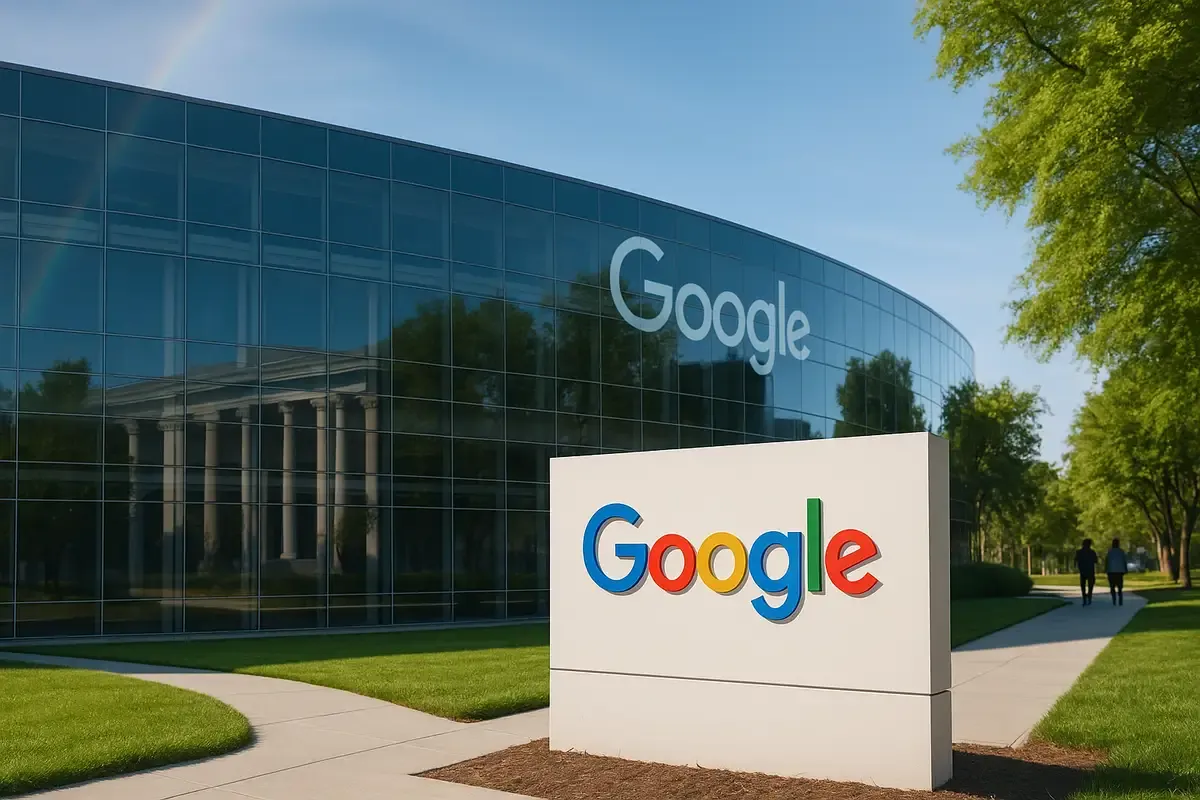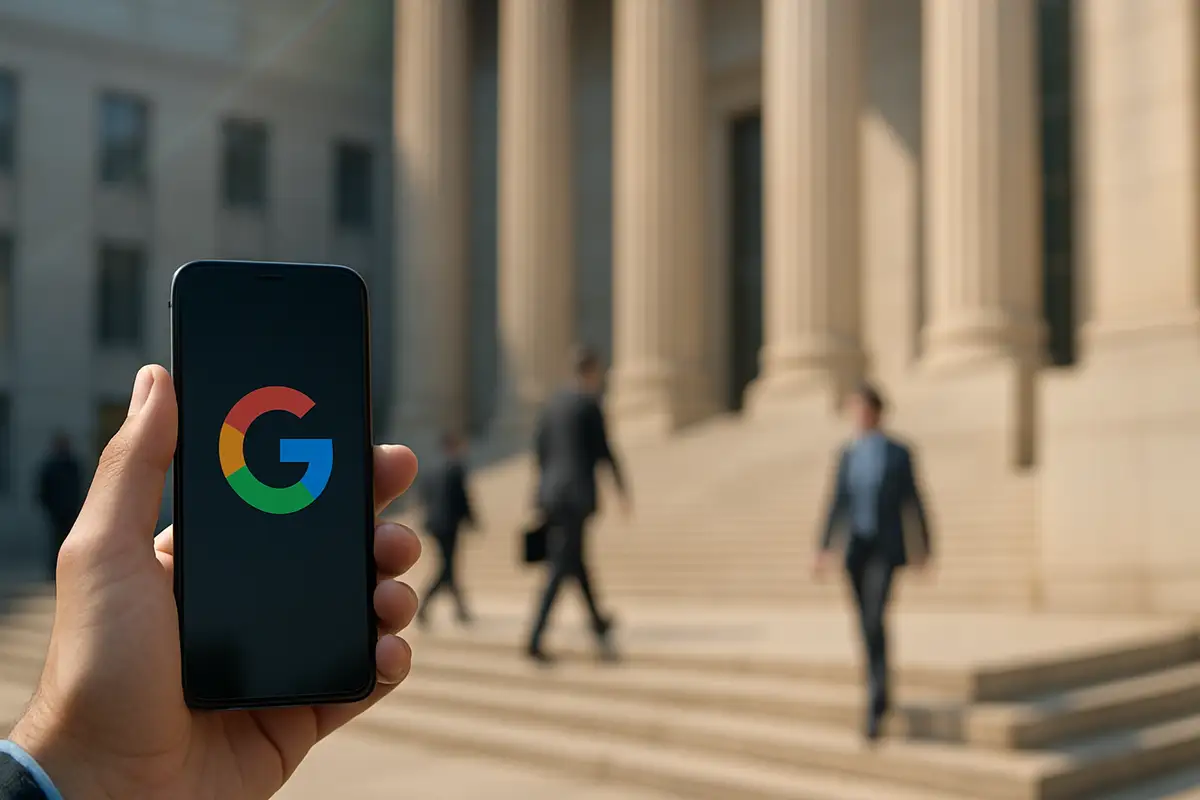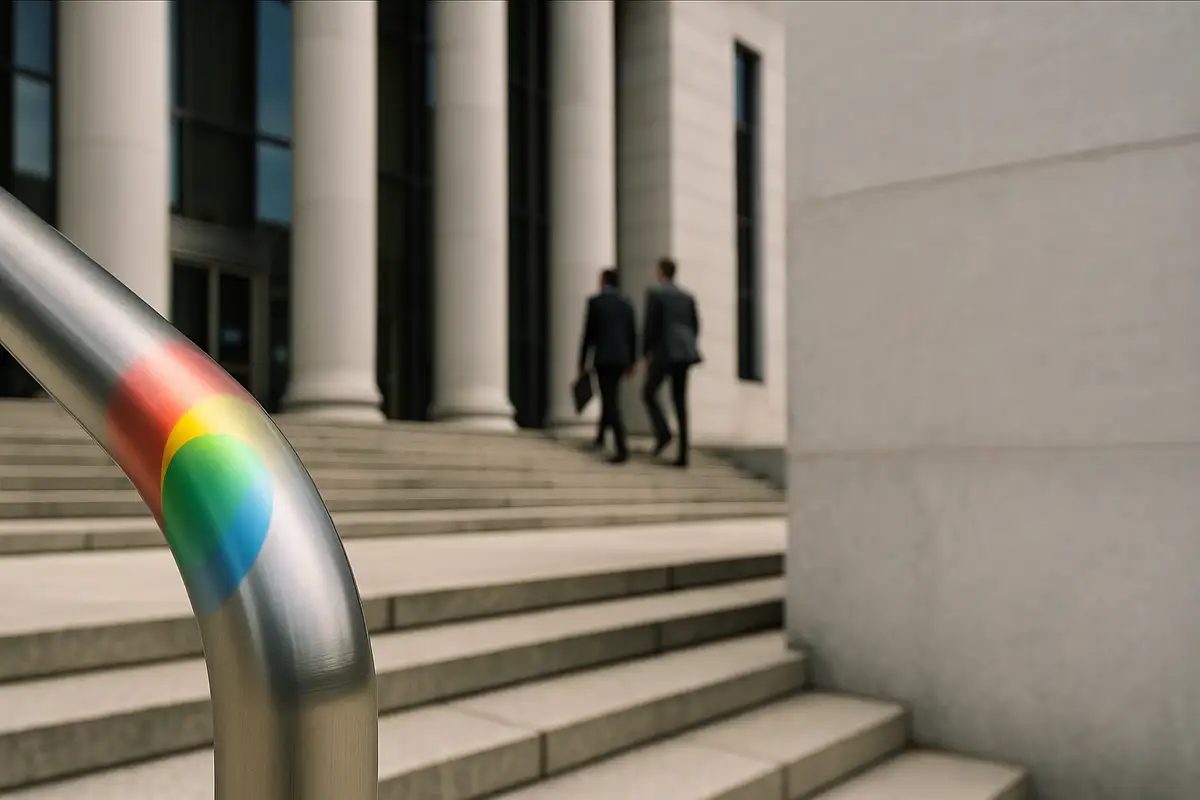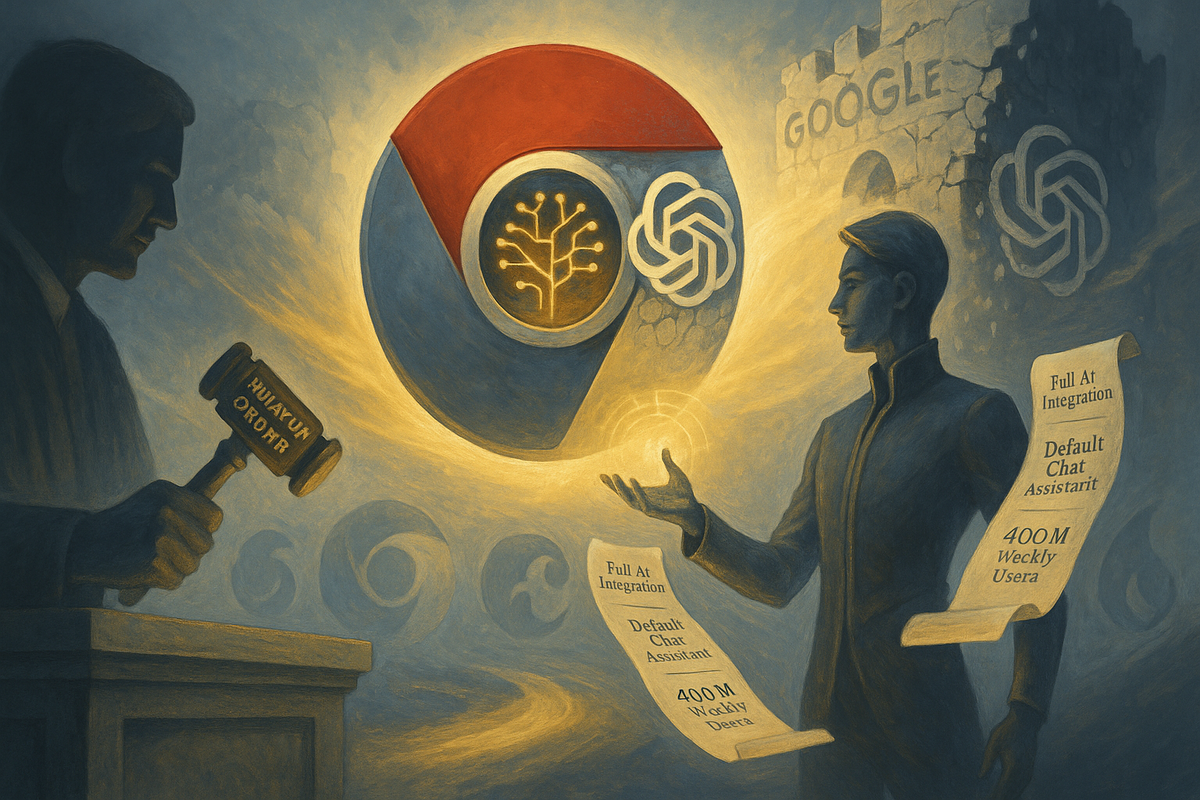Tesla Kills Its Flagship Cars to Build Robots That Don't Work Yet
Tesla discontinuing flagship vehicles to build Optimus robots. Musk admits zero robots doing useful work despite promising thousands. $20B capex plans.
Judge spares Google from breakup but forces data sharing with rivals. The twist: AI has fundamentally changed search competition since the DOJ sued in 2020, leading to a remedy that bets on technological disruption over structural fixes.

💡 TL;DR - The 30 Seconds Version
👉 Judge Amit Mehta lets Google keep Chrome and Android but orders data sharing with competitors after finding it illegally monopolized search.
🤖 AI emergence since 2020 fundamentally altered the case, with the court devoting 29 pages to how ChatGPT and rivals now compete with traditional search.
💰 Google can keep paying Apple $18-20 billion annually for Safari defaults, but new deals are limited to one-year terms and can't be exclusive.
📊 Alphabet stock surged 8% after hours while Apple gained 2.5% as investors celebrated avoiding the DOJ's preferred breakup remedy.
⚖️ Critics call it "judicial cowardice" for preserving Google's monopoly power, while supporters argue breakup would harm US AI competitiveness against China.
🚀 The ruling sets precedent for courts weighing rapid tech disruption against structural antitrust remedies in future Big Tech cases.
Court spares search giant from breakup after generative AI reshapes the landscape
A year after finding Google an illegal monopolist, U.S. District Judge Amit Mehta declined to break up the company. Instead, his remedies order lets Alphabet keep Chrome and Android while forcing limited data sharing with “qualified competitors” and barring exclusive search defaults. The turn reflects a simple thesis: the market he must police in 2025 is not the market the Department of Justice sued over in 2020.
The tension is stark. The court says Google monopolized search, yet stops short of structural relief. Mehta frames the gap with a technological caveat: the rise of generative AI is already reshaping how people find information. In his 230-page opinion, he devotes a lengthy section to AI’s competitive impact and flatly writes, “The emergence of GenAI changed the course of this case.” That’s the pivot.
Investors read it the same way. Alphabet jumped roughly 8% after hours on Tuesday, Sept. 2, while Apple gained about 2.5%. Markets expect continuity, not rupture. For now.
The court rejected forced divestitures of Chrome or a contingent Android breakup. It also stopped short of banning Google’s default-placement payments, long the backbone of its distribution moat. But it did narrow them. New default deals can’t be exclusive and will be limited to one-year terms, increasing renegotiation pressure and opening the door to multiple defaults or mode-specific choices.
Data access is the headline concession. Google must provide rivals a one-time snapshot of its crawled web index and, on a periodic and capped basis, anonymized user-interaction datasets. The order also bars exclusive distribution covering Google Search, Chrome, Assistant, or the Gemini app, and puts Google under six years of oversight by a technical committee monitoring compliance. In addition, the court directs Google to offer search and text-ads syndication on commercial terms and to disclose material changes to its search ad auctions. The message is access and transparency, not dismemberment.
It’s not a breakup. It’s a blueprint. And it’s intentionally narrow.
When the DOJ filed in October 2020, search meant typed queries in a browser box. Google’s $26 billion in annual default payments — including an estimated $18–20 billion to Apple in 2020 — looked like an unassailable moat built on distribution and data. Defaults drove behavior; behavior fed data; data fortified quality and ads. A classic flywheel.
Generative AI scrambled the frame. Tens of millions now route information tasks through ChatGPT, Perplexity, Claude, and other assistants. These products aren’t full replacements for web search, but they divert intent and attention, especially for “do this for me” tasks. Mehta’s view: future competition will not only be “Google versus Bing,” but search versus assistant. Remedies must account for both.
That logic favors interoperability over surgery. Give potential challengers data and syndication hooks; forbid exclusivity that could lock up the AI frontier; watch closely. It’s a bet that market structure is in flux. Cautious, but deliberate.
Google keeps its crown jewels: Chrome, Android, and the right to pay for default status — just not exclusively. Apple preserves a lucrative revenue stream while gaining annual leverage in negotiations. Device makers can preload rivals without breaching Google deals. It’s continuity with constraints.
Rivals get a lower barrier to entry. An index snapshot and interaction datasets cut time and cost to bootstrap search-grade systems, while syndication and non-exclusivity broaden distribution paths. Still, building a consumer-grade product that can pry users from Google remains “astronomically expensive,” as one analyst put it. Habits are sticky. So are moats.
Publishers worry the ruling leaves a growing sore unaddressed: content being ingested for AI systems with limited opt-out leverage if they want to stay visible in Search. News groups argue the court should have forced a real choice on AI usage. They see a missed opportunity. They may be right.
Critics call the order judicial timidity dressed as modernity. If the court found monopolization, they argue, it should terminate the monopoly — not entrench it under the banner of fast-moving tech. DuckDuckGo calls the outcome a whiff. Antitrust advocates label it “judicial cowardice.” Their core claim: Search data and distribution power are even more decisive in the AI era, not less.
Supporters counter that antitrust remedies must be narrowly tailored — the Microsoft precedent looms large — and that smashing a flagship U.S. tech firm amid an AI arms race would be reckless. Innovation is a hare; antitrust is a tortoise. The court chose not to sprint.
Two tracks loom. First, appeal. Google still contests last year’s liability finding and can challenge this remedy set. Second, the separate ad-tech case moves into its own remedies phase this month in the Eastern District of Virginia, where structural divestiture (e.g., Google Ad Manager) remains squarely on the table. That one hits Google’s ad stack, not its search defaults.
This order is a midpoint, not an end state. It buys time — for the court, for rivals, and for Google.
Why this matters:
Q: What exactly qualifies a company as a "qualified competitor" for Google's data sharing?
A: The court didn't define specific criteria, leaving this to the six-year technical oversight committee. Likely candidates include Microsoft (Bing), OpenAI (ChatGPT search), and Perplexity, but smaller search engines and AI companies could also qualify based on technical capabilities and competitive intent.
Q: How much money does Apple actually make from its Google deal?
A: Apple received $18-20 billion in 2020 alone from Google for Safari default placement—roughly 25% of Apple's total profit that year. With Google paying $26 billion total across all partners, Apple captures the lion's share of these distribution payments.
Q: What happens next with Google's appeal, and how long will this drag out?
A: Google plans to appeal both the original monopoly finding and these remedies. Appeals typically take 12-18 months, and the case could reach the Supreme Court. During appeals, Google doesn't have to implement most remedies, meaning actual changes won't happen for years.
Q: How is this different from Google's other antitrust case about advertising?
A: This case focused on search monopoly and default deals. The separate ad-tech case, with remedies hearings starting September 22, targets Google's advertising technology stack and could force divestiture of Google Ad Manager—potentially more damaging to Google's revenue than this search ruling.
Q: What specific search data must Google share with competitors?
A: Google must provide a one-time snapshot of its crawled web search index (the catalog of websites it's found) and periodic, anonymized user interaction data (what people click on). Critically, it doesn't have to share advertising data or reveal its ranking algorithm's "secret sauce."



Get the 5-minute Silicon Valley AI briefing, every weekday morning — free.